University of Chicago Graduate Student Unionization Vote Passes with 92% Support
Now, all eyes are on how the University administration, which challenged the previous election vote in 2017, will respond.
Graduate students rally for unionization in front of Levi Hall on the Monday before their first unionization vote in 2017.
March 16, 2023
For the second time in six years, University of Chicago graduate students have voted overwhelmingly to unionize, a major victory in Graduate Students United–United Electrical (GSU-UE)’s 15-year push for formal recognition. The result was certified Thursday, March 16, at the National Labor Relations Board (NLRB) Region 13 office in downtown Chicago.
Now, all eyes are on the University administration, which can file an objection about the election’s administration within five business days, or, as it did in 2017, challenge graduate students’ legal right to unionize. The University did not immediately respond to The Maroon’s requests for comment.
“We are really looking forward to meeting the University at the bargaining table and improving the working conditions for graduate workers for the better,” GSU-UE spokesperson Valay Agarawal told The Maroon after the election result was released.
The vote to unionize received 92 percent support, with 1,696 “yes” votes and 155 “no” votes counted. In-person voting on campus took place January 31 and February 1, with mail-in voting open through March 15.
A total of 1,946 votes, including 95 ballots challenged by the University or the union for eligibility concerns, were cast, for a turnout of approximately 60 percent among eligible graduate student voters. Because the challenged ballots numbered fewer than the margin of victory, they were not counted.
The vote marks a decisive victory for decades of student organization against the administration’s anti-unionization efforts. In 2017, the previous unionization vote, just under 70 percent of graduate student workers voted in favor of union recognition. Conflict simmered, however, when the University joined other schools in challenging the graduate students’ legal basis to unionize. The union eventually withdrew their appeal to the NLRB over fears that the board would reverse its stance on the question.
In 2021, President Joe Biden’s NLRB appointees withdrew a rule proposed under Donald Trump’s administration that would have hindered graduate student unionization at private universities. The GSU-UE vote is part of a nationwide wave of graduate unionization occurring since then. Graduate students at Boston University, the Massachusetts Institute of Technology, and Northwestern University, among other institutions, have successfully unionized without formal challenges from their employers.
To UChicago’s student organizers, successful unionization at peer institutions is an encouraging sign. “We have no reason to believe that [a legal challenge] would happen,” GSU-UE co-president Neomi Rao told The Maroon in February.
The University has not directly stated whether it plans to challenge the vote, as it did in 2017, though University Provost Ka Yee Lee wrote in January that “the decision of whether to unionize ultimately will be made only by the eligible graduate students who vote in the election.”
Expecting the vote to pass, GSU-UE has already begun gearing up to govern and operate a recognized union. Elections for the bargaining committee, which will represent the union during contract negotiations with the University, are currently underway. Nominations for that election close on Friday, with voting set to take place between March 20 and March 23.
This article will be updated as more information becomes available.


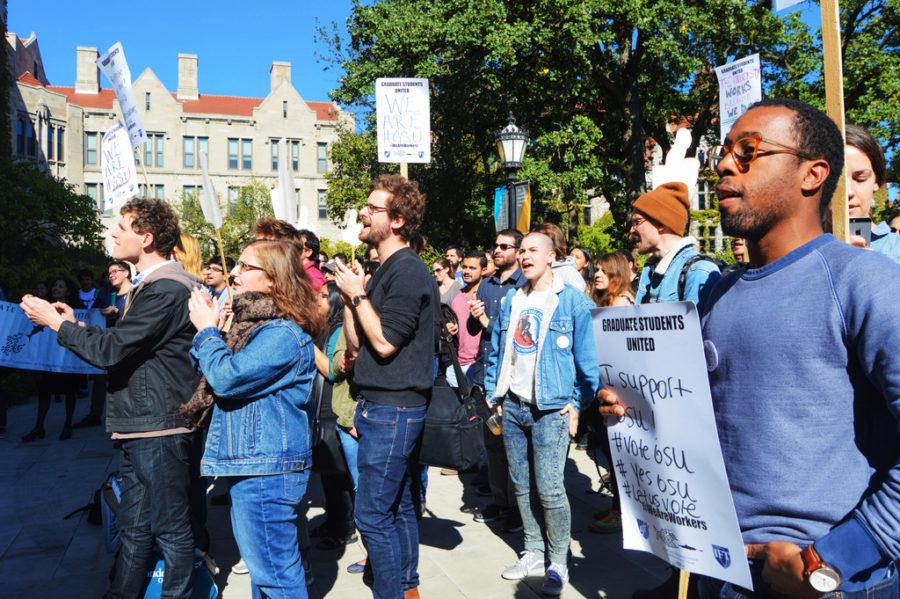

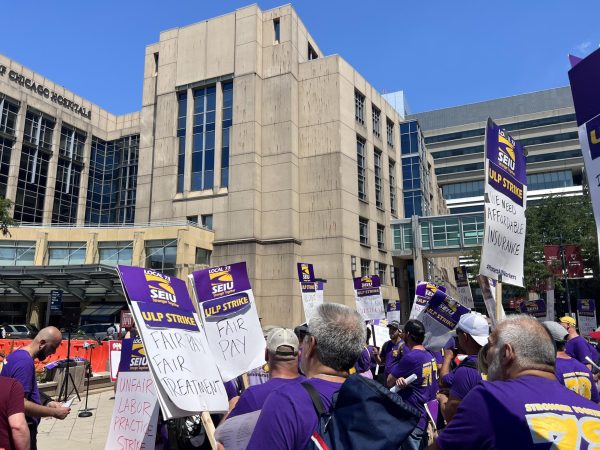

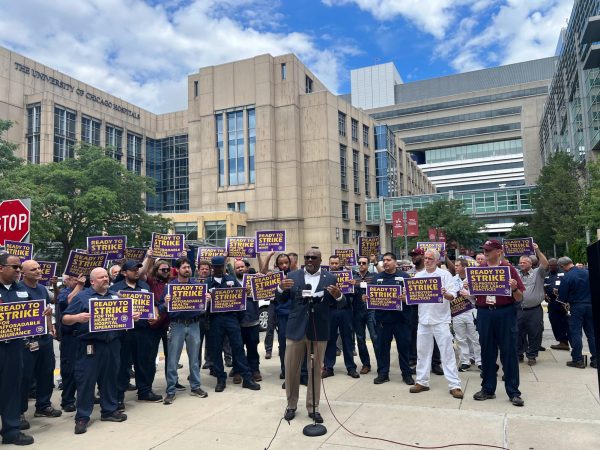

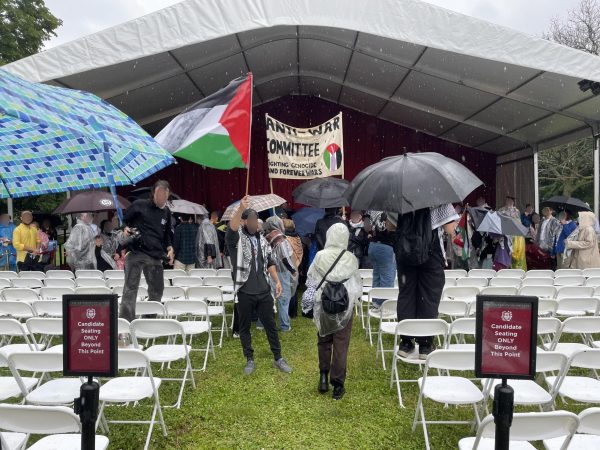
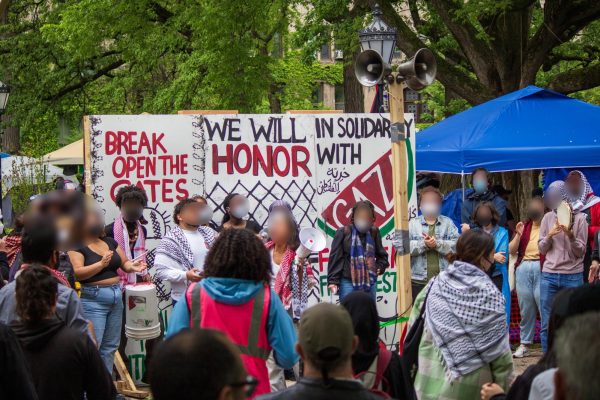

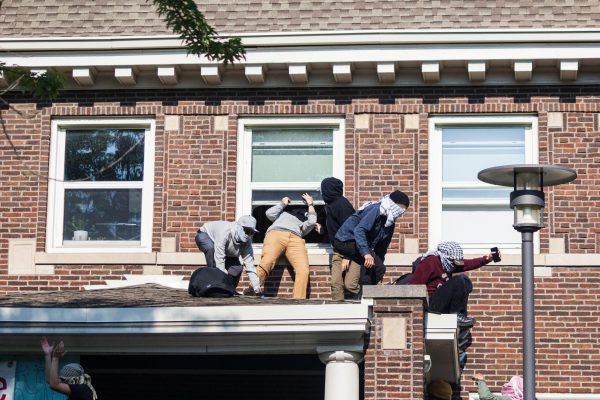
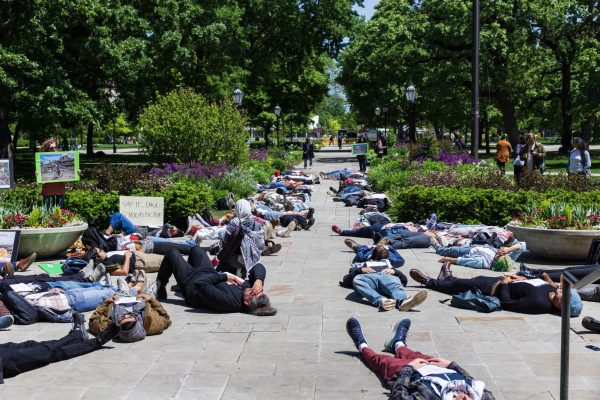
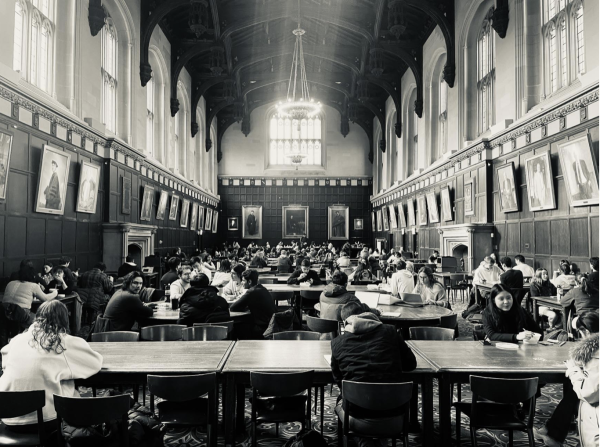
Jacob Myleson / Mar 17, 2023 at 8:05 am
How unfortunate.